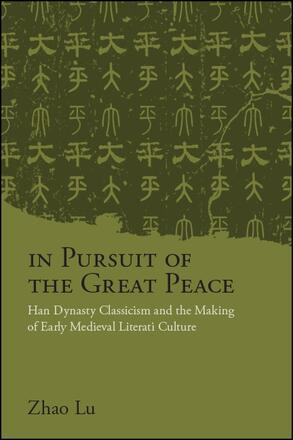
In Pursuit of the Great Peace
Han Dynasty Classicism and the Making of Early Medieval Literati Culture
Alternative formats available from:
Examines the Great Peace (taiping), one of the first utopian visions in Chinese history, and its impact on literati lives in Han China.
Description
Through an examination of the Great Peace (taiping), one of the first utopian visions in Chinese history, Zhao Lu describes the transformation of literati culture that occurred during the Han Dynasty. Driven by anxiety over losing the mandate of Heaven, the imperial court encouraged classicism in order to establish the Great Peace and follow Heaven's will. But instead of treating the literati as puppets of competing and imagined lineages, Zhao uses sociological methods to reconstruct their daily lives and to show how they created their own thought by adopting, modifying, and opposing the work of their contemporaries and predecessors. The literati who served as bureaucrats in the first century BCE gradually became classicists who depended on social networking as they traveled to study the classics. By the second century CE, classicism had dissolved in this traveling culture and the literati began to expand the corpus of knowledge beyond the accepted canon. Thus, far from being static, classicism in Han China was full of innovation, and ultimately gave birth to both literary writing and religious Daoism.
Zhao Lu is Assistant Professor of Global China Studies, NYU Shanghai and Global Network Assistant Professor, NYU. He is the coauthor (with C. A. Cook) of Stalk Divination: A Newly Discovered Alternative to the I Ching.
Reviews
"…Zhao presents his proposals based on original research on figures and events and thus provides new glimpses at the intellectual concerns of early imperial China. " — Religious Studies Review
"Zhao's study presents a model of intellectual history. Smartly written, it excels in connecting the analysis of specific texts and concepts with broader trends in the social-political realm. His work helps demythologize Chinese thought and makes it legible to scholars around the world. " — Miranda Brown, University of Michigan